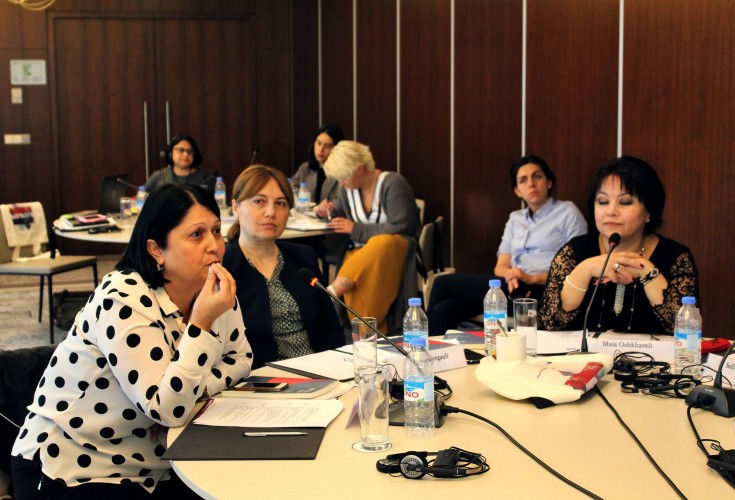საერთო ცხელი ხაზი +995 577 07 05 63

16Nov

Within the framework of the EU-funded project – “Facilitating Implementation of Reforms in the Judiciary (FAIR)” – a two-day workshop for female judges was organized by “Human Rights Education and Monitoring Center (EMC)” on 16-18 November, 2018.
The aim of the workshop was to support strengthening women judges, to identify the gender balance in the court system and to initiate the discussions to overcome the gender inequality. During the meeting, the local and international experts talked about the roles of the women judges in the process of increasing the court independence. The workshop also covered the issues about the women representation on the managerial and administrative positions as well as on the perspectives of eradication the visible and invisible barriers faced by the female judges.
Fifteen female judges from the courts located in the South and East parts of Georgia participated in the workshop.
"The workshop was very informative. This was conditioned by both factors: well-chosen topics and speakers. The judge from the United Kingdom, Anisa Dhanji, who is also a member of the International Association of Women Judges, shared experiences of different countries in line with gender inequality, provided detailed information on the activities of the Association, spoke about the role and importance of women in the justice system. During the meeting, we discussed several ideas for strengthening women's involvement in the judiciary system, which will hopefully be implemented and I'm sure that, this will positively affect the whole system "- said one of the participants at the end of the workshop.
The overall objective of the “FAIR” project is to support real reforms of the judicial system through monitoring, evidence-based advocacy, strengthening of individual judges and promotion of dialogue with them. The project also aims to increase the involvement of community groups in the reforms process of the judiciary through awareness raising and mobilization.
For further information please contact: Salome Achba, Communication Manager, “Human Rights Education and Monitoring Center” (EMC), [email protected]
The website accessibility instruction